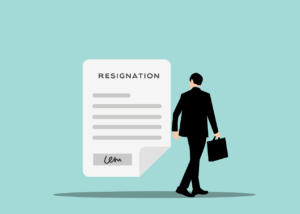Though you know this one backfired, you can’t be sure of how other policies you enact moving forward will impact your team and your business at-large. It’s okay to be retrospective and to attempt to peer around the corner, but for now, what you really need is to make things right.
How to Move Past a Bad Business Policy
The very fact that you are willing to recognize you made a mistake is a positive sign. However, you might still have a problem to deal with and you don’t want Murphy walking back into your organization, wielding his rule which states, “every solution breeds new problems.” You’ve already seen that unfold and it should have phased you enough to make a change.
…we hate to fail. We fear it, we dread it, and when it does happen, we hold onto it. We give it power over our emotions, and sometimes we allow it to dictate our way forward (or backward). Some of us go to great lengths to avoid failure because of all the pain and shame associated with it. —Forbes
It’s also good that you’re self-aware enough to accept the blame instead of digging in and defending what you’ve done, which will only insult your team members. So, how do you prevent this from happening again, but, still be able to enact policies that don’t end-up backfiring? Here are some helpful bits of advice you can use:
- Don’t be afraid to admit you made a mistake. This bears repeating, and, it does so big time. There’s little else more damaging than a leader who won’t admit he or she is wrong. It’s arrogant, harmful, and can cause good people to leave. In fact, the best thing to do is to have a sit down with your employees and others and talk about how you arrived at the decision, why it was wrong, and, how you plan to resolve the situation.
- Identify the problem and be proactive. Speaking of resolving the situation, you’re inevitably going to face problems again, so, before they have a chance to materialize, do what you can to thwart them. This won’t necessarily be easy, but your intuition will tell you when something is about to become a problem.
- Get ideas from your team about solutions. Your team members are among your most valuable assets. Don’t go it alone, speak openly with them and listen to their suggestions. You’ll likely find that doing so will present many ideas which can be molded together for a solution.
- Avoid new policies that create new problems. This is more difficult than you might think, but it’s still possible. Before you do enact a new policy, think about what it will do and how it will be received by your team. If you play it out and identify possible result scenarios, you can usually avoid making another bad policy.
In my 34 years of business experience with ownership in 9 different businesses and consulting/coaching with hundreds of business owners, I have a long list of bad business policies that I have made. All of the policies well intended, but many times not fully thought through. My greatest lesson in making policies, is that hiring the right people with the right core values will minimize the policies that seem necessary to police and hold your team accountable. Those employees with the right core values will do what is right almost all of the time, thereby eliminating the need for many policies.
[shareaholic app=”follow_buttons” id=”26833294″]



